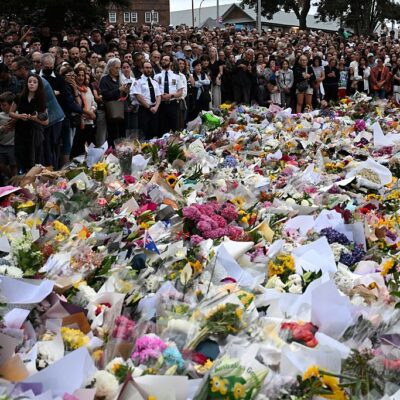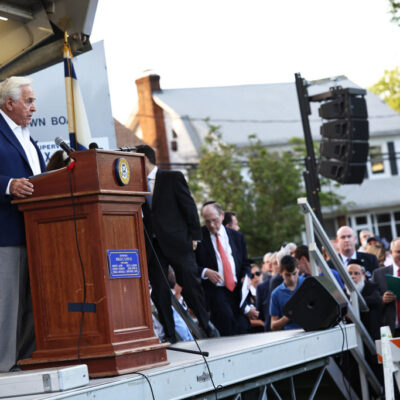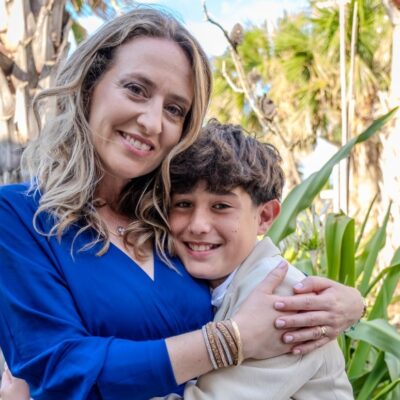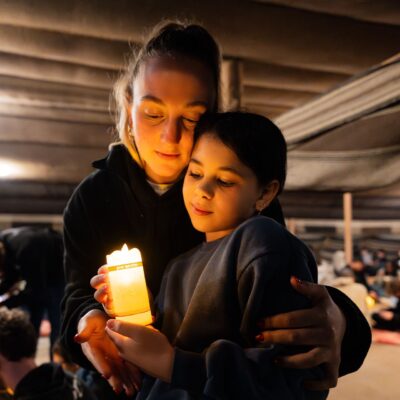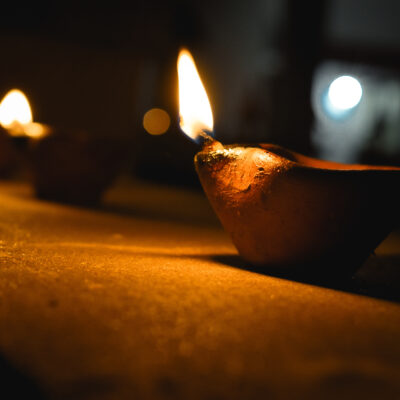Opinion
The real deal
What Israelis wish American Jews understood
In Short
I've learned: For Israel, everything has changed since the Oct. 7 terror attacks — and there's no going back — but the country is more than a conflict
Having now worked at the Jewish Agency for Israel for three and a half years — my first experience as an American Jew at an Israeli organization — I still discover the culture gaps between Americans and Israelis in a professional setting.
These gaps are natural. We may have shared goals, but living on the ground in Israel — where there are real security threats on a daily basis — compels Israelis to see things differently. Adjusting to some aspects of culture shock were minor, like learning the various army slang that’s peppered into conversation and understanding that I need not break out my tie for most business meetings in the country. At the same time, I’ve never worked with colleagues who were this eager to invite me for a Shabbat dinner or offer to host my daughter when she was in the country.

Alexi J. Rosenfeld/Getty Images
A woman carries an Israeli flag with a yellow ribbon for the hostages during the ‘Independence Day Rally For The Hostages’ on Israeli Independence Day in Tel Aviv's Hostages' Square on May 13, 2024.
Being close, informal and direct are some of the defining attributes my Israeli colleagues share, and that approach very much informs how they see the world, including the horrific events that occurred on Oct. 7. Israelis have created a special society that they have vowed to protect with every fiber of their being. As such, here are three observations I’ve made that I think they’d wish their American brothers and sisters would understand about them as we all continue to grapple with the aftermath of that horrific day.
Every single Israeli has been forever changed
During the weeks and months after Oct. 7, 2023, it was not uncommon to refer to this date as Israel’s 9/11. This observation, while well-meaning, completely underestimates the impact of the Hamas attack on Israeli society.
On Sept. 11, 2,800 Americans died. Every one of those deaths was unspeakably tragic, yet when you consider Israel’s population versus that of the United States, the equivalent death toll of Oct. 7 would be losing well over 30,000 Americans.
Yet the situation goes far beyond the loss of life. Imagine if the 9/11 attack had been from Canada and, (remembering the proportional population differences) that over 5,000 American citizens were being held captive and several hundred thousand Americans were not able to live in their homes for over a year. If you can begin to get your head around these numbers, you can start to understand the reality that Israelis are facing.
There is not a single Israeli whose life has not been dramatically changed this last year. From colleagues who are on reserve duty in Gaza to Zoom calls interrupted by sirens because of incoming missile attacks to co-workers explaining the proximity of bomb shelters to their children’s schools, this war has impacted every aspect of Israeli day-to-day life.
Imagine enduring these conditions with the knowledge that most of the world and a not insignificant number of Americans believe that you have overreacted to the situation. Imagine knowing that your nation has been accused by international tribunals of genocide and your soldiers are compared to the Nazis.
None of this is normal and the full impact of a population living under these conditions will not be fully understood for years.
Returning to Oct. 6, 2023 is not an option
Israelis are well-known for their vibrant democracy, i.e. in the nation’s entire history, a single party has never won enough votes to govern without a coalition. Yet nearly across the ideological spectrum and regardless of your personal political camp, there is remarkable consensus around a seemingly simple notion: “We can no longer live next to terrorist groups that actively want to kill us.”
In my 20 years in Israel advocacy, I cannot count the number of times I have heard American Jews complain how bad Israel is at PR. This simplistic statement is not without validity, but it overlooks a very basic fact — most Israelis have concluded that it is better to be hated than pitied.
Oct. 7, 2023 was not only the darkest day in Israel’s history and the deadliest day for Jews since the Holocaust, it dealt a severe blow to a key pillar of Israel’s security and sense of itself where it was seen as a strong player in a dangerous neighborhood. Israel’s neighbors do not care how smooth Israeli’s talking heads are, they do care about Israel’s ability to strike back at its enemies harder than they are struck.
Israelis also intuitively understand something that many of us have not fully internalized. Yes, they are fighting for survival, but in a larger sense, they are fighting for all of us. This would be deeply ironic to some of our college students that the country they are slandering is on the front lines of the war to preserve the way of life they enjoy including their right to be so wrong about a matter that they do not understand. If Israel fails, there are few non-ideological, serious foreign policy experts who do not believe that the rest of the Western world is next on the target list.
Israel is more than the conflict
It would be easy for a nation waging a war like Israel’s to be transformed into a garrison state – a modern-day Sparta concerned only with its military prowess and might. Nothing could be further than the truth — even (or especially) after Oct. 7.
Israel has more museums and orchestras per capita than any other country in the world. Indeed, one of my favorite Israel experiences was when my taxi driver told me that I had chosen to go to the wrong museum and argued with me the entire drive to go to a different one (he was right, by the way).
Israel remains the “Start-up Nation” with the highest concentration of high-tech companies in the world other than Silicon Valley and ranks first in recycling its wastewater. Perhaps most amazingly, in 2024 Israel ranked as the fifth-happiest country in the world while the United States came in at 23. This would be remarkable for any country but is nothing less than miraculous in a nation surviving the worst attack in its history.
There are issues that divide Israelis and American Jews – some superficial and some quite serious. Yet as American Jews and supporters of Israel, it has never been more important for us to endeavor to understand the perspective of the overwhelming majority of Israelis. We owe it to the Israeli people right now, and we owe it to ourselves.
Dan Elbaum is head of North America at the Jewish Agency for Israel and the president and CEO of Jewish Agency International Development.

 Add EJP on Google
Add EJP on Google